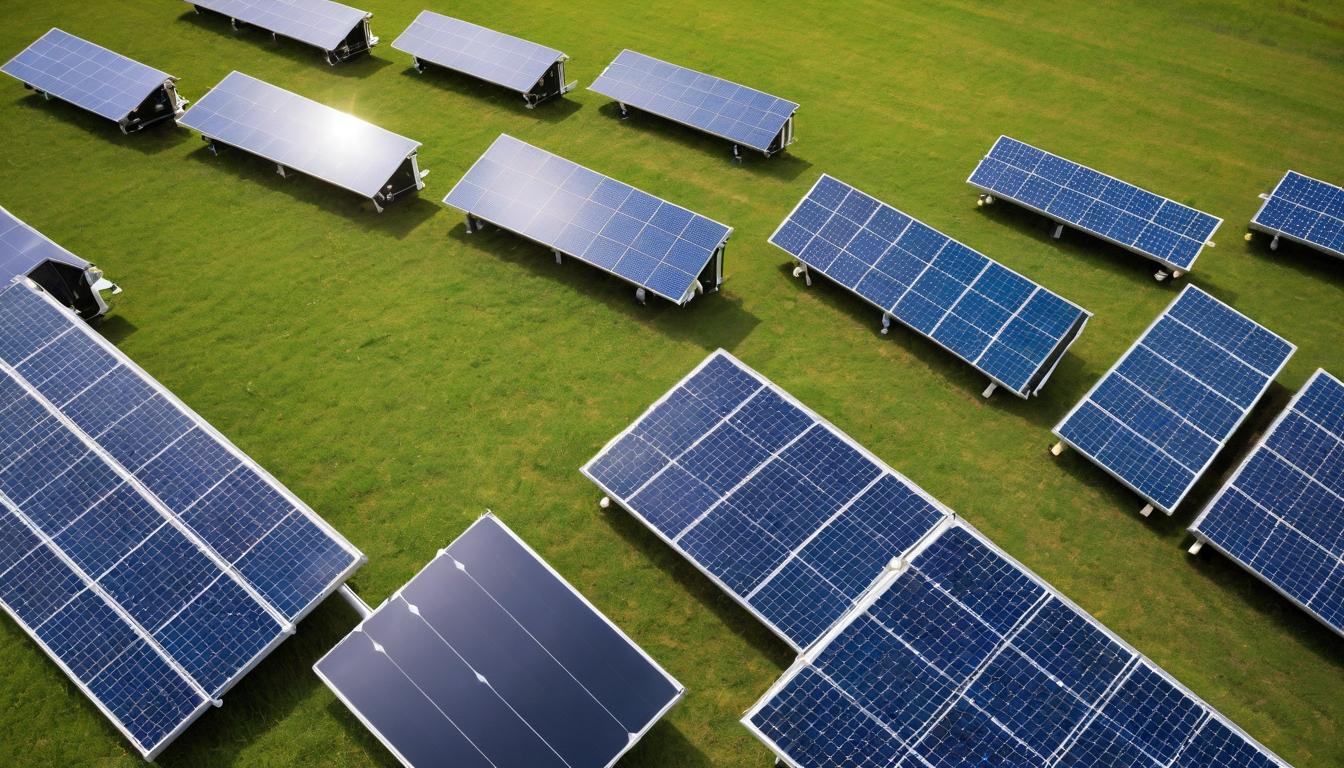In the sprawling solar farms of California's Central Valley, where endless rows of photovoltaic panels shimmer under the relentless sun, a quiet revolution is taking shape. While most attention focuses on new installations and falling prices, a critical conversation is emerging about what happens when these panels reach the end of their 25-30 year lifespan. The solar industry, once celebrated for its clean energy credentials, now faces its own sustainability test—and the solutions emerging might just surprise you.
Across research facilities from Germany to Japan, scientists and engineers are developing sophisticated recycling processes that can recover up to 95% of a solar panel's materials. Silver, silicon, aluminum, and glass—all valuable components that were previously destined for landfills—are now being systematically extracted and repurposed. The European Union has led the charge with mandatory recycling regulations, while U.S. companies are rapidly scaling their operations to meet the coming wave of retired panels.
What makes this development particularly fascinating isn't just the environmental benefits, but the economic opportunity it represents. The International Renewable Energy Agency estimates that by 2050, recycling solar panels could unlock $15 billion worth of recoverable materials globally. This isn't just waste management—it's resource mining from existing infrastructure, creating circular economies where none existed before.
The technology behind this transformation reads like science fiction. Advanced robotics systems can now disassemble panels with surgical precision, while chemical processes separate materials at the molecular level. Some companies are even developing 'cradle to cradle' manufacturing approaches where new panels are designed specifically for easy disassembly and recycling—a fundamental shift from the linear 'take-make-dispose' model that has dominated manufacturing for centuries.
Yet challenges remain. Current recycling costs often exceed the value of recovered materials, creating economic hurdles that require innovative business models and policy support. Collection logistics for distributed rooftop systems present another complex puzzle, as panels reach end-of-life at different times across millions of locations. The industry is responding with take-back programs, advanced sorting facilities, and partnerships with waste management companies to create seamless systems for consumers.
The human stories behind this transition are equally compelling. In Arizona, a former semiconductor engineer now leads a team developing ultrasonic separation techniques that can delicately peel apart panel layers without damaging valuable components. In France, a startup founded by three materials science graduates has perfected a thermal process that recovers high-purity silicon at half the energy cost of virgin production. These innovators aren't just solving technical problems—they're redefining what sustainability means for the renewable energy sector.
Looking ahead, the implications extend far beyond solar panels. The lessons learned here are creating blueprints for recycling wind turbine blades, lithium-ion batteries, and other renewable infrastructure. We're witnessing the maturation of an industry that recognizes true sustainability requires planning for the entire lifecycle, not just the operational phase. This holistic thinking represents perhaps the most significant evolution in clean technology's brief history.
For consumers and businesses considering solar installations, this evolving landscape adds another dimension to the decision-making process. Questions about manufacturer recycling programs, panel design for disassembly, and end-of-life responsibilities are becoming part of smart procurement discussions. The most forward-thinking companies now view responsible retirement planning as a competitive advantage and brand differentiator.
As the first generation of mass-deployed solar panels approaches retirement age, the recycling revolution offers a powerful reminder that environmental solutions require ongoing innovation and adaptation. The solar industry's willingness to confront its own waste challenge head-on demonstrates a maturity that bodes well for its long-term viability. In the end, true sustainability isn't just about generating clean energy—it's about building systems that leave nothing behind but progress.
The hidden revolution: how solar panel recycling is quietly transforming renewable energy's sustainability




